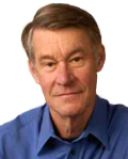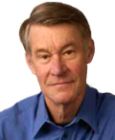
Aristotle could have avoided the mistake of thinking that women have fewer teeth than men by the simple device of asking Mrs. Aristotle to open her mouth.
– Bertrand Russell (1872–1970), Welsh mathematician and philosopher
Know you what it is to be a child? ... it is to believe in belief.
– Francis Thompson, 19th c. British poet
There are in fact two things—science and opinion; the former begets knowledge, the latter ignorance.
– Hippocrates (c. 460–377 BCE), Greek physician, father of medicine, author of the Hippocratic Oath: "Do No Harm"
I appeal to your own eyes as my witness and judge.
– William Harvey (1578–1657), English physician and discoverer of the circulation of the blood. His simple appeal—that people look for themselves, rather than to authority—was revolutionary in his time. His discovery furthered not only physiology, but also the scientific method in general. The idea that theological dogma be subordinated to the empirical experience of the individual was a crucial step in the birth of science—and of democracy.
It is a test of true theories not only to account for, but to predict, phenomena.
– William Whewell (1794–1866), English scholar who taught the scientific method at a time when it was a novelty, and put his finger on a key element—prediction.
Science is built up with facts, as a house is with stones. But a collection of facts is no more a science than a heap of stones is a house.
The advance of science is not comparable to the changes of a city, where old edifices are pitilessly torn down to give place to new, but to the continuous evolution of zoological types which develop ceaselessly and end by becoming unrecognizable to the common sight, but where an expert eye finds always traces of the prior work of the past centuries.
– Jules Henri Poincaré (1854–1912), French mathematician and philosopher of science
Common sense is, as a matter of fact, nothing more than layers of preconceived notions stored in our memories and emotions for the most part before age eighteen.
The whole of science is nothing more than a refinement of everyday thinking.
Science is the attempt to make the chaotic diversity of our sense-experience correspond to a logically uniform system of thought.
– Albert Einstein (1879–1955), German-born American physicist, in a class by himself
The stumbling way in which even the ablest scientists in every generation have had to fight through thickets of erroneous observations, misleading generalizations, inadequate formulations, and unconscious prejudice is rarely appreciated by those who obtain their scientific knowledge from textbooks.
– James B. Conant (1893–1978), American chemist, educator, and scientific statesman
Science is a cemetery of dead ideas, even though life may issue from them.
True science teaches, above all, to doubt and be ignorant.
– Miguel de Unamuno (1864–1936), Spanish philosopher
That is the essence of science: ask an impertinent question, and you are on the way to a pertinent answer.
– Jacob Bronowski (1908–1974), Polish-born British Renaissance Man, creator of the television series, The Ascent of Man
Science commits suicide when it adopts a creed.
– Thomas Henry Huxley (1825–1895), English biologist and early champion of Darwin's theory of evolution
Science is a collection of successful recipes.
– Paul Valéry (1871–1945), French critic. This characterization may seem simplistic, but it has two virtues: it emphasizes the operational character of scientific theories and it provides a nice antidote to the besetting sins of modern science: arrogance and grandiosity.
The basic texture of research consists of dreams into which the threads of reasoning, measurement, and calculation are woven.
– Albert Szent-Györgyi (1893–1986), Hungarian-born American biochemist who isolated vitamin C.
O speculators about perpetual motion, how many vain chimeras have you created in the like quest? Go and take your place with the seekers after gold.
– Leonardo da Vinci (1452–1519), Italian artist and engineer. Here he anticipates the law of conservation of energy: "There is no free lunch in Nature."
This is the excellent foppery of the world, that, when we are sick in fortune—often the surfeits of our own behavior—we make guilty of our disasters the sun, the moon, and stars; as if we were villains by necessity, fools by heavenly compulsion, knaves, thievers, and treachers by spherical predominance, drunkards, liars, and adulterers by an enforced obedience of planetary influence.
– William Shakespeare (1564–1616). In these lines from King Lear Shakespeare mocks astrological beliefs, as he does in the better known line from Julius Caesar, " The fault, dear Brutus, is not in our stars, but in ourselves..."
We are to admit no more causes of natural things than such as are both true and sufficient to explain their appearances.
Nature does nothing in vain, and more is in vain when less will serve; for Nature is pleased with simplicity, and affects not the pomp of superfluous causes.
I do not make hypotheses.
– Isaac Newton (1642–1727), English scientist and mathematician, discoverer of laws of motion and gravitation and the calculus. Newton is insisting that one need not deal in speculation. He held that metaphysical "hypotheses" were unnecessary and extraneous and had no place in scientific theorizing. His method became the model for physics: Discover Nature's laws, express them mathematically, and derive consequences and predictions.
The sciences do not try to explain, they hardly even try to interpret, they mainly make models. By a model is meant a mathematical construct which, with the addition of certain verbal interpretations, describes observed phenomena. The justification of such a mathematical construct is solely and precisely that it is expected to work.
– John von Neumann (1903–1957), Hungarian-born American mathematician, creator of game theory, and logician of digital computers
Man is a creature who makes pictures of himself, and then comes to resemble the picture.
– Iris Murdoch (1919–1999), British author and philosopher
It is not a question of whether a theory is philosophically delightful, or easy to understand, or perfectly reasonable from the point of view of common sense. The theory of quantum electrodynamics describes Nature as absurd from the point of view of common sense. And it agrees fully with experiment. So I hope you can accept Nature as She is—absurd. ... Please don't turn yourself off because you can't believe Nature is so strange.
– Richard P. Feynman (1918–1988), Nobel-laureate American physicist, who demonstrated on national television that frozen O-rings had led to the explosion of the Challenger space shuttle.
Under normal conditions the research scientist is not an innovator but a solver of puzzles, and the puzzles upon which he concentrates are just those which he believes can be both stated and solved within the existing scientific tradition.
The transfer of allegiance from paradigm to paradigm is a conversion experience that cannot be forced. Though a generation is sometimes required to effect the change, scientific communities have again and again been converted to new paradigms. Furthermore, these conversions occur not despite the fact that scientists are human but because they are.
– Thomas Kuhn (1922–1996), American philosopher and historian of science who introduced the notion of "paradigm shift" to describe scientific revolutions
From The Wisdom of Science.




